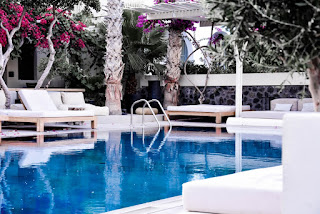Swimming Pool Heating
Swimming pool heating Sydney comes in
many categories. There are thermal blankets, pool water electric heat pumps,
gas-powered pool water heaters, and solar pool water heaters. Thermal blankets
are relatively inexpensive to use, aside from purchase costs, thermal blankets
do not add utility bills for pool owners. Thermal blankets are very efficient
in retaining pool heat, thereby reducing pool water reheating costs. Thermal blankets
also prevent algae growth by protecting the pool from direct sunlight when not
in use and preventing debris from entering and contaminating the pool water. Thermal
pool covers are heat insulators, so pool water reheating expenses are kept at a
minimum. The additional costs of using thermal blankets are the need to
purchase rollers because thermal blankets are relatively heavy and rollers are
needed to cover and uncover the pool for use, and for proper thermal blanket
storage at the pool area.
Electric heat pumps capture ambient heat from
the air. Electric heat pumps are the most energy-efficient pool heating
equipment available for hot climates where ambient air temperatures are
normally warmer than normal. Electric heat pumps work very well in warm or
tropical-type climates, collecting heat from the air and converting it into
warming the pool water. Electric heat pumps are very efficient in maintaining a
constant and even pool temperature in warmer climates. Energy costs and savings
are considerable when using electric pool heating pumps because there is no
need to use propane or any fossil-fuel to heat the swimming pool water. Electric
heat pumps are not the most efficient swimming pool heating Sydney system for colder climates
because the ambient air temperatures in colder climates lack sufficient ambient
air heat for an electric heat pump to work efficiently in warming swimming pool
water.
Gas pool heating comes in a wide
variety of heating capacities and sizes. Gas pool heating use either natural
gas, propane, or other types of non-renewable fuel. A pump draws cold swimming
pool water, runs it through a filter, and then heats the swimming pool water in
a gas burner water chamber, and the heated water is then pumped back into the pool.
The complete cycle is repeated until the swimming pool water is heated to the
desired warmth. Gas pool heating typically requires 12-24 hours to completely
heat swimming pool water. Gas pool heating is typically used as back-up heaters
when pools are not heated often. Independent of outside air temperatures, gas pool
heaters use fuel to heat swimming pool water, therefore there is the added
expense of purchasing fuel to heat swimming pool water. Gas pool heaters are
more expensive to operate if pools are not regularly heated. Cold swimming pool
water typically takes longer to warm-up, gas or fuel bills are much higher for
those who do not regularly insulate and maintain pool temperatures.
Solar swimming pool heating Sydney is relatively inexpensive
to operate because the power used to heat the pool water is direct sunlight.
Solar pool heaters make sense in locations where sunlight occurs all-year-round
such as in tropical climates. Solar pool heaters are environmentally-friendly
and automatically warms up the pool water whenever there is sunlight. Pumps are
needed to draw water from the pool, heating the water in tubes, and
recirculating the heated water back into the pool. Solar pool heating is the
most cost-effective and environmentally friendly way of heating swimming pool
water.




Comments
Post a Comment